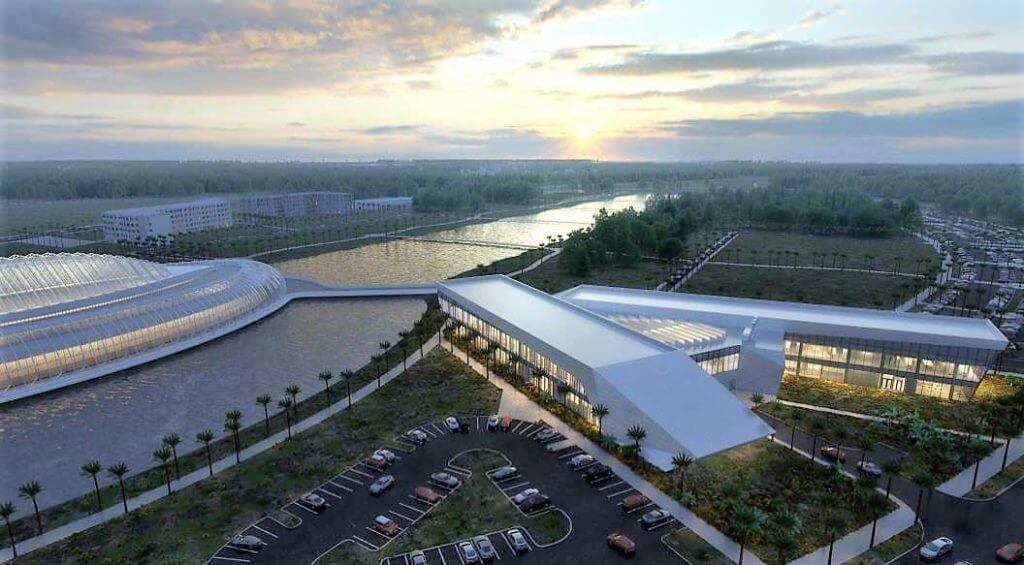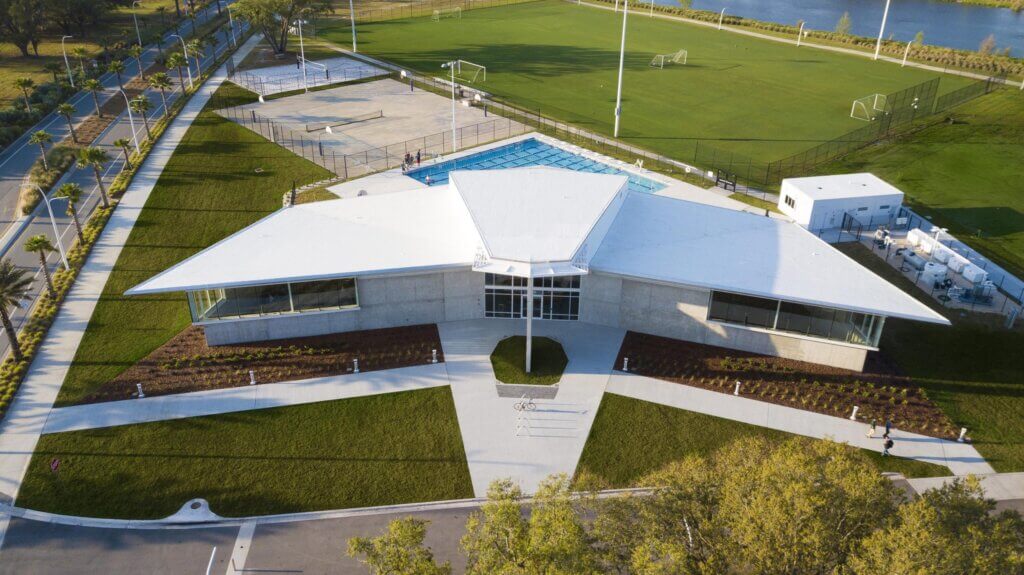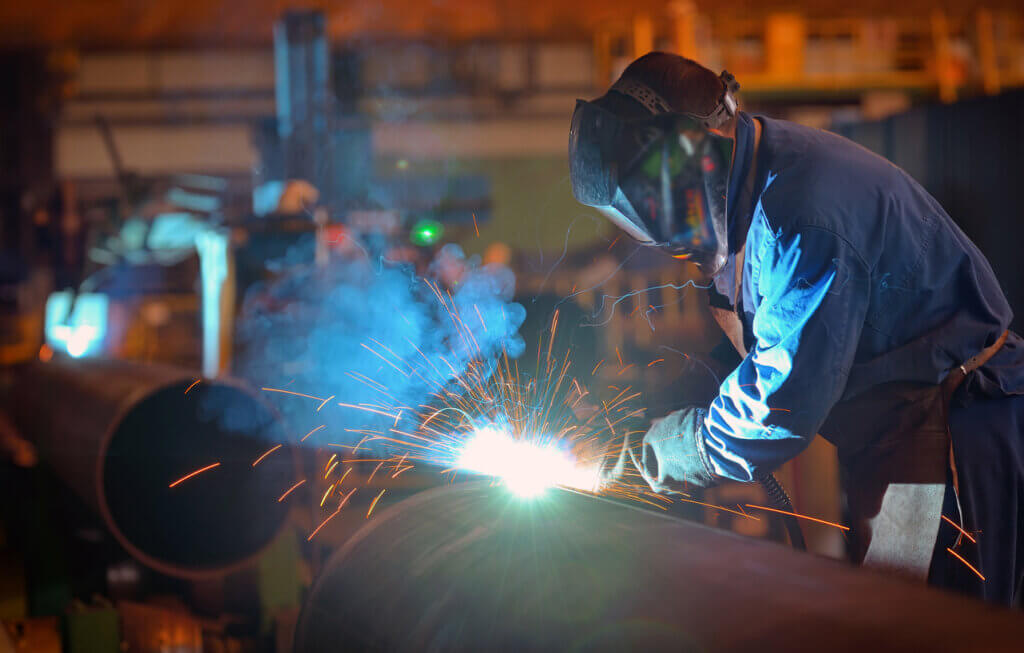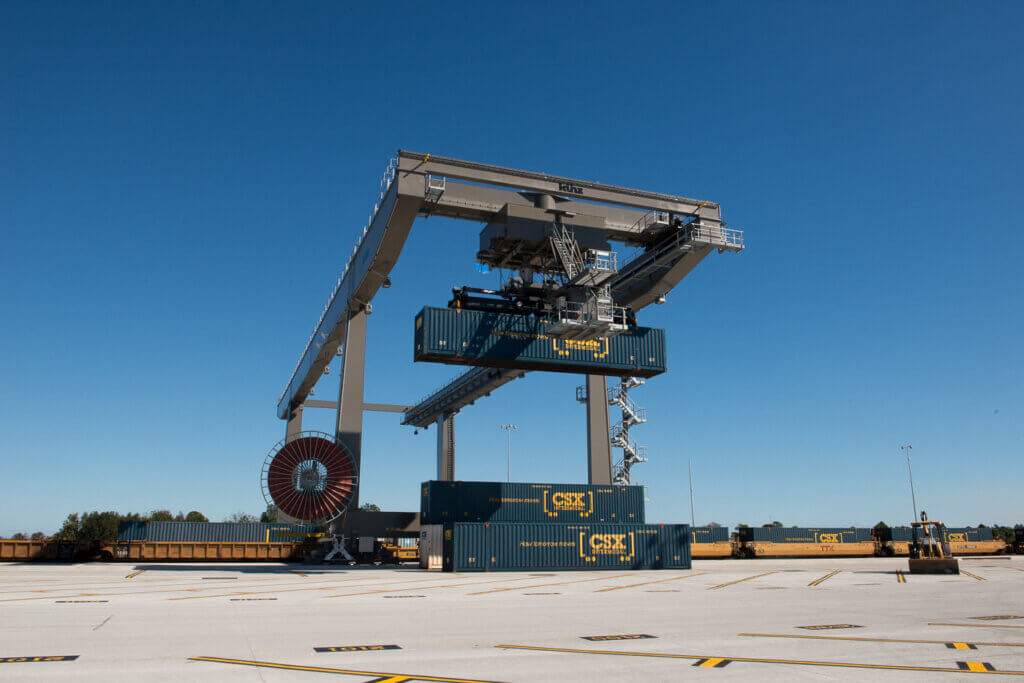Florida Poly Expands with Second Academic Building
Looking to the future, Florida Polytechnic University is embarking on a two-year project to build a second academic building to continue to prepare the workforce of tomorrow for higher-wage, higher-skill jobs in a burgeoning tech-savvy county.
The new 85,000-square-foot building dubbed the ARC — Applied Research Center — will “serve as a research hub for the Central Florida region, becoming a magnet for high-tech development around the school,” the university said.
“The ARC will support all of our current majors as well as new majors that will be added through 2026,” said Florida Poly President Randy K. Avent. “Graduating students will have degrees in either engineering, mathematical or physical sciences. They will often have jobs in engineering, software, health care, manufacturing and logistics. But with expertise in the methodical analysis and solution of complex and uncertain problems, they will be offered positions across many different kinds of industries.”
Some may stay and work in Polk County, where the number and diversity of such jobs is growing — one reason the Central Florida Development Council has put a priority on those fields.
“Our majors and concentrations are consistent with CFDC’s target industry clusters, which defines what industries they are focusing on growing in Polk County,” Avent said.
Those clusters include research and development that will occur at SunTrax and the Advanced Mobility Institute (AMI) at Florida Poly, the state’s 12th university and the only one exclusively devoted to STEM (science, technology, engineering and math) education.
SunTrax is a $42 million test track that borders the Polk Parkway, where two buildings are currently under construction. The first phase — the 2.25-mile track to test toll technology, among other things — is expected to open in the first half of 2019. The second phase is a $90 million 200-acre infield testing and verification facility that will begin development by the end of 2019. The Florida Turnpike Enterprise is building and funding the project.
“AMI is the research institute that develops advanced techniques for testing autonomous vehicles and SunTrax is the platform for testing and collecting data,” Avent said. “The ARC is a research building that will house labs and provide the necessary infrastructure needed for the faculty to do the research. Together, they represent the ‘anchor tenant’ of a research park, which we have been pushing, that will attract industry to this area to grow high-skill, high-wage jobs.”
Board of trustees member Bob Stork said developing a research park could help the area’s economy, saying a recent study shows communities with a research center experience 28 percent growth compared to those without one, which grow at 7 percent to 8 percent a year.
“Florida Poly is working with the Polk County community stakeholders to solidify interest in the development of a research center in the proximity of the university,” he said. “This could prove to be a significant dividend for the Polk County area.”
Designed by the architecture firm HOK “with the goal of creating a dynamic, functional and flexible space that will promote research growth, entrepreneurship, collaboration and connectivity amongst the campus,” according to the university, the two-story ARC will be built adjacent to Florida Poly’s first building, the Innovation, Science and Technology (IST) building. Both will be visible from Interstate 4.
“The ARC is a critical facility that will be essential to our ability to fulfill the university’s mission to produce industry-ready students, perform applied research and support economic development in Florida,” said Dr. Terry Parker, provost and executive vice president of Florida Poly. “The building will provide the needed physical infrastructure for research success and is crucial to recruiting new research-active faculty.”
Construction will begin in August.
Stork said the new building is critical because the IST has been at capacity since opening in 2014.
“Florida Poly has had to balance the competing need for wet and dry labs, classrooms and basic office space for faculty,” Stork said. “The right proportion of these contending spaces is fundamental in our mission to attract and retain the talented engineering students that will master the applied sciences and ultimately help grow Florida’s economy.”
Avent agreed.
“The Applied Research Center will be an integral element in growing a high-technology economy around campus,” Avent said. “The ARC will provide the research labs and facilities to attract research talent, capital investment, and enhanced partnerships.”
—
If you have questions about this topic or others, please contact us at the Central Florida Development Council.



